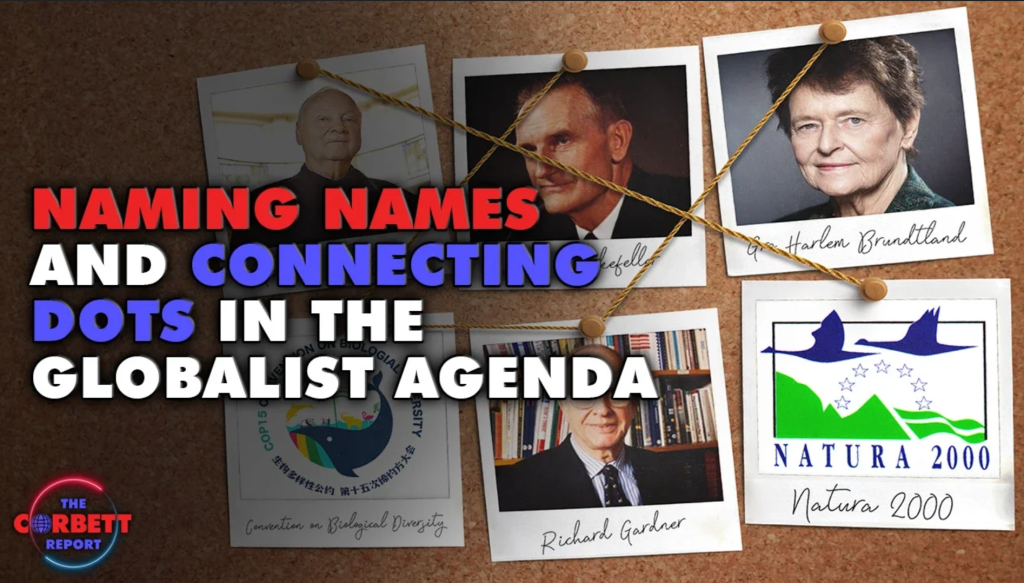The Corbett Report delves into the underlying mechanisms of a globalist agenda that spans decades, fueled by elite interests aiming to control resources and populations worldwide. In a recent presentation, Dr. Meryl Nass addressed the International Crisis Summit in Tokyo, providing a lens through which the consolidating power and influence of a select group of global leaders can be scrutinized. The discussion centers on The Club of Rome’s 1991 publication, “The First Global Revolution,” which reflects an ongoing narrative attributing humanity itself as the principal antagonist of numerous global challenges. The Club of Rome posits environmental issues like pollution and climate change as symptomatic of humanity’s broader existential risks, advocating a collective response that ostensibly emerges from reformed conduct among individuals.
The importance of this historical context cannot be understated, as it links to significant events like the United Nations Conference on the Human Environment in Stockholm in 1972, an initiative backed by powerful figures, including the Rockefeller family. The conference marked a pivotal moment in uniting nations under an environmental banner while simultaneously serving the interests of the oil industry. Key proponents like Maurice Strong, an influential oil man, emphasized the conference’s role in affirming global leadership and addressing environmental concerns through international collaboration. This convergence of environmentalism and elitism reveals a complex relationship between the desire for ecological reform and the consolidation of power among a narrow cadre of individuals and organizations.
Hugh Downs, a notable media personality, advanced similar sentiments, remarking on the dawn of an international movement focused on environmental preservation. His assertions underscore the narrative that humanity’s actions have inflicted harm upon the planet, framing a dire need for collective solutions. However, this perspective risks oversimplifying nuanced issues while effectively redirecting blame from more systematic institutional failures to the broader populace, once again reinforcing the narrative of humanity as the primary source of environmental degradation. This line of reasoning raises critical questions about the motivations behind establishing such discourses, particularly in relation to the transformational agendas pursued by influential elites.
The significance of the UN’s contributions to environmental discourse throughout the 1970s also warrants discussion, as this era marked a turning point in international focus on environmental issues, elevating them to the forefront of global dialogue. The Stockholm conference, with its extensive participation from varied nations, is emblematic of a global movement that transcended regional boundaries, signaling a shift towards cooperative environmental responsibility. The institutional frameworks established during this formative moment set a precedent for subsequent environmental summits, codifying a growing reliance on international organizations to dictate terms under which nations would collectively address ecological crises.
Yet, the undercurrents of oil-funded environmentalism, particularly those championed by the Rockefellers, reveal an uncomfortable truth: the convergence of ecological advocacy and capitalist interests serves to obscure deeper systemic inequalities and exploitative behaviors. The promotion of initiatives by elites under the guise of ecological stewardship reframes ecological issues as necessitating intervention from the very entities contributing to such degradation. The notion that improvement in environmental conditions requires distant oversight and intervention from the powerful perpetuates an ongoing cycle of dependence, often neglecting grassroots human agency and traditional conservation methods that might empower local populations to lead change.
In summary, the Corbett Report invites a critical evaluation of the motivations, consequences, and overarching goals intrinsic to the globalist agenda, anchored in narratives that portray humanity itself as the enemy. Through historical documentation and the consolidation of elite power and influence, mechanisms of control become increasingly apparent, revealing the intricate ties between environmental causes and the vested interests exerting their influence over global policy. A deeper exploration of these dynamics may illuminate pathways for genuine reform that acknowledges human agency while challenging the status quo maintained by a privileged few.

